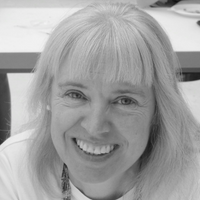
Louise Marlow
Professor of Religious Studies
Louise Marlow is Professor of Religious Studies and former Director of Middle Eastern Studies. She received her undergraduate degree from Cambridge University, where she studied Persian and Arabic, and her doctoral degree from Princeton University.
In much of her research, she has concentrated on the pre-modern Arabic and Persian literatures of political advice, often referred to as ‘mirrors for princes’. She is the author of Counsel for Kings: Wisdom and Politics in Tenth-Century Iran (Edinburgh: Edinburgh University Press, 2016), and Hierarchy and Egalitarianism in Islamic Thought (Cambridge: Cambridge University Press, 1997). She is currently completing Medieval Muslim Mirrors for Princes: An Anthology of Arabic, Persian and Turkish Political Advice. She is the editor of The Rhetoric of Biography: Narrating lives in Persianate societies (Boston: Ilex Foundation and Washington, D. C.: Center for Hellenic Studies, 2011), Dreaming across Boundaries: The interpretation of dreams in Islamic lands (Boston: Ilex Foundation and Washington, D. C.: Center for Hellenic Studies, 2008), and, with Beatrice Gruendler, Writers and Rulers: Perspectives on their relationships from Abbasid to Safavid times (Wiesbaden: Dr. Ludwig Reichert Verlag, 2004). In her recent research, she has explored examples of Arabic and Persian bilingualism and translation between Arabic and Persian.
She teaches courses in Islamic cultural studies and Muslim ethics, as well as occasional courses in Classical Arabic literature and translation. Her courses include studies of the intellectual and cultural histories of Iran and Egypt, as well as seminars in travel literature, law, urban forms, and the study and representation of Islam and Muslims. In all her teaching she concentrates on historical contexts and the diversity across and within Muslim cultures.
Education
- B.A., University of Cambridge
- M.A., Princeton University
- Ph.D., Princeton University
Current and upcoming courses
Muslim Ethics
REL347
How have Muslims, over the course of a millennium and a half and in strikingly different environments and circumstances, conceived of human nature, moral conduct and responsibility, and the good life; and how have they formulated, debated and applied ethical principles? This course explores these questions with reference to the rich materials that have informed the religious cultures of Muslim communities, including the sacred sources of the Qur'an and the Prophet’s example, the reception, interpretation and development of late antique moral philosophies and wisdom literatures, the evolving corpora of legal and theological scholarship, and the elaboration of rationally based ethical systems. Issues are likely to include charity, the environment, animal welfare, economics, gender and sexuality, medicine and bio-ethics, conflict and dispute resolution.
(MES 347 and REL 347 are cross-listed courses.)-
Muslim Ethics
REL267
How have Muslims, over the course of a millennium and a half and in strikingly different environments and circumstances, conceived of human nature, moral conduct and responsibility, and the good life; and how have they formulated, debated and applied ethical principles? This course explores these questions with reference to the rich materials that have informed the religious cultures of Muslim communities, including the sacred sources of the Qur'an and the Prophet's example, the reception, interpretation and development of late antique moral philosophies and wisdom literatures, the evolving corpora of legal and theological scholarship, and the elaboration of rationally based ethical systems. Issues include charity, the environment, animal welfare, economics, gender and sexuality, medicine and bio-ethics, conflict and dispute resolution. (MES 267 and REL 267 are cross-listed courses.)